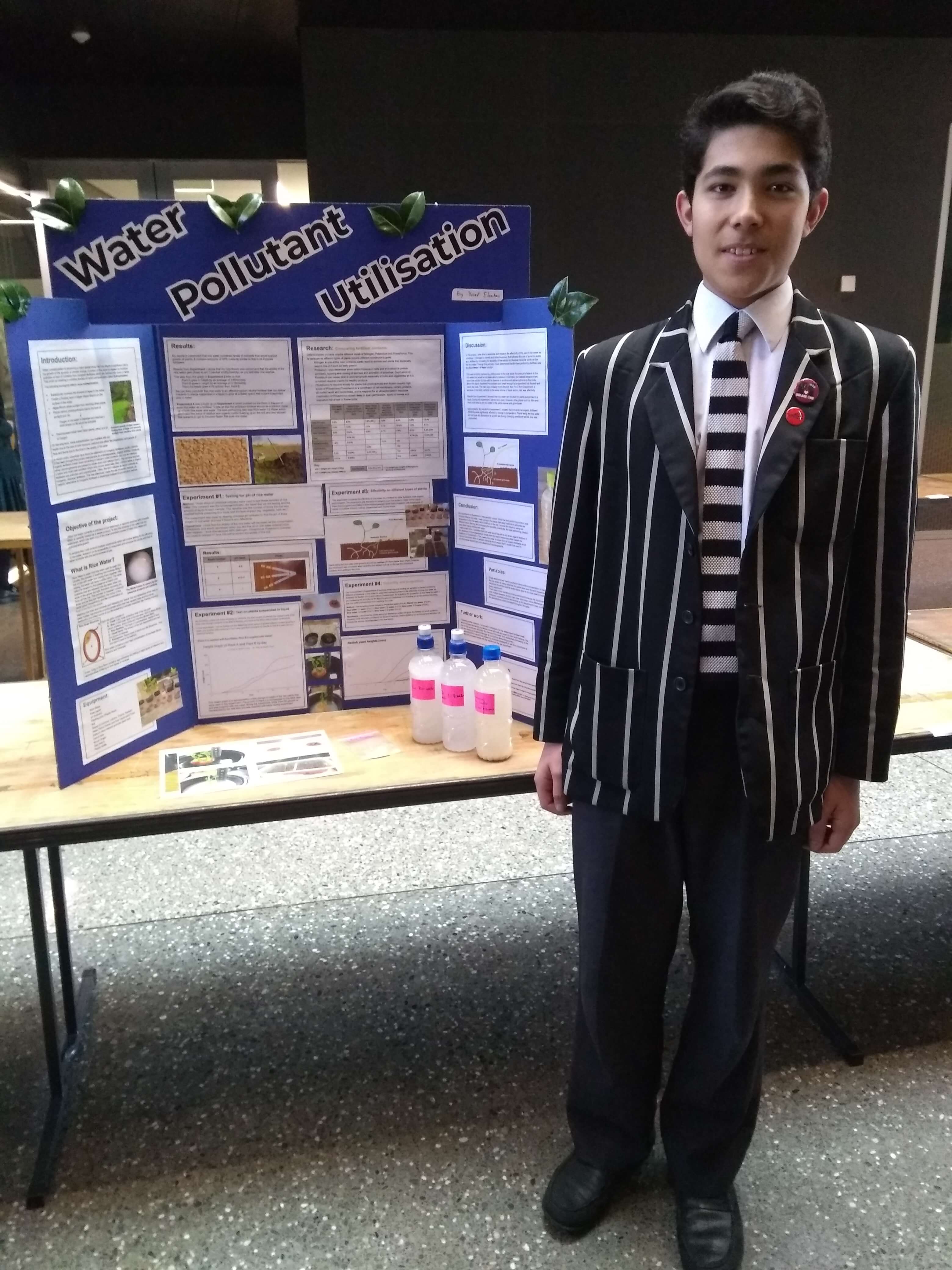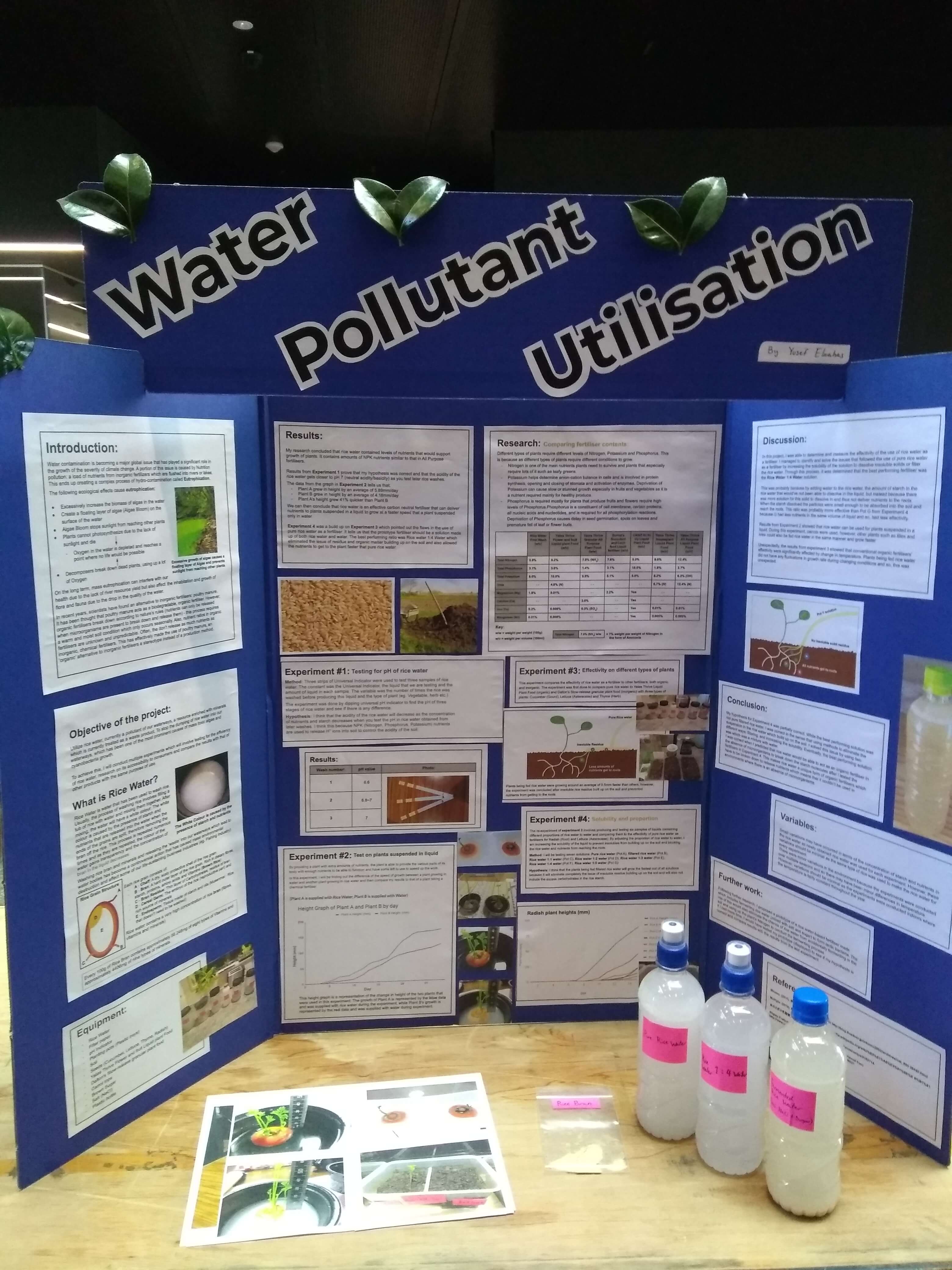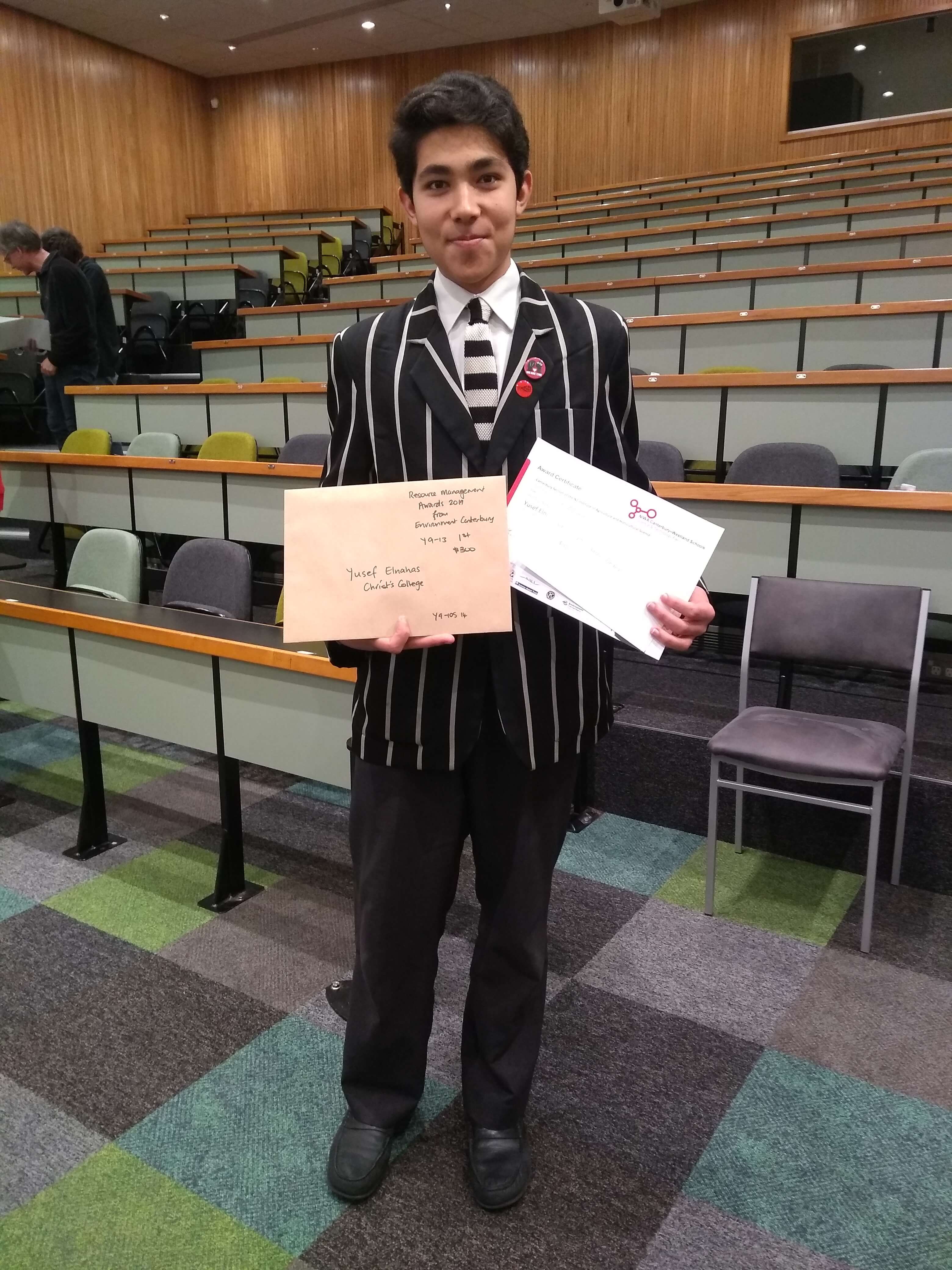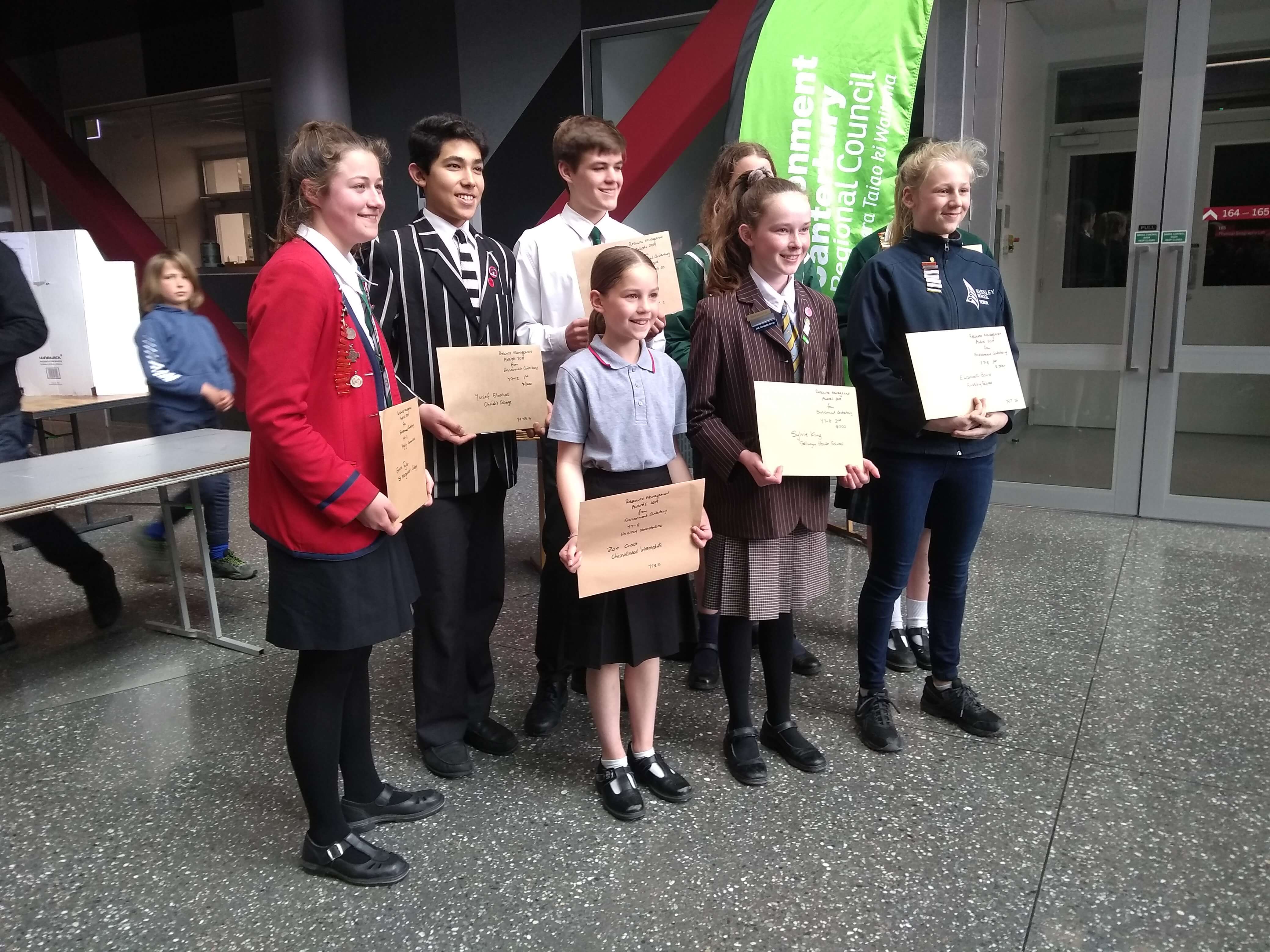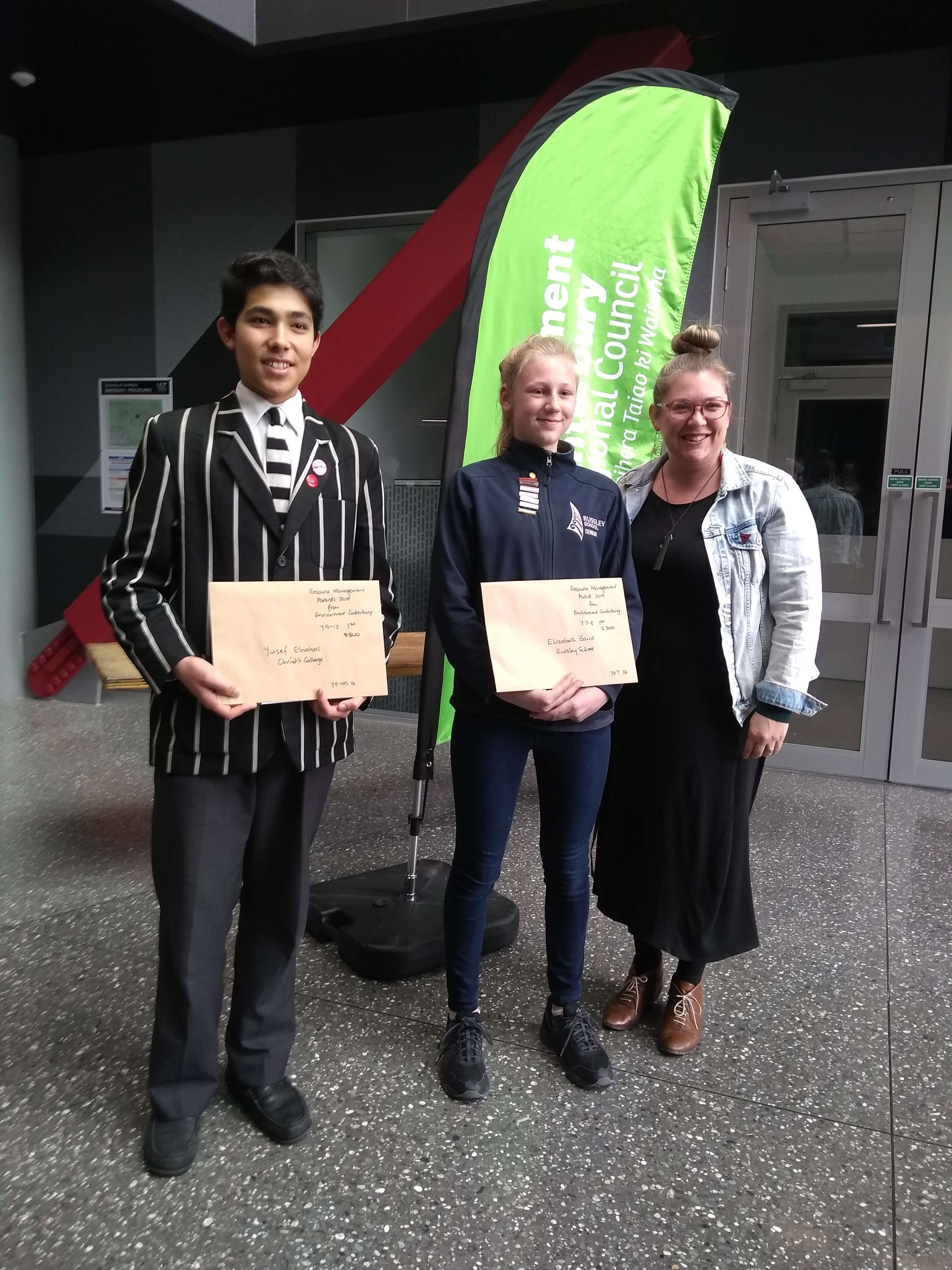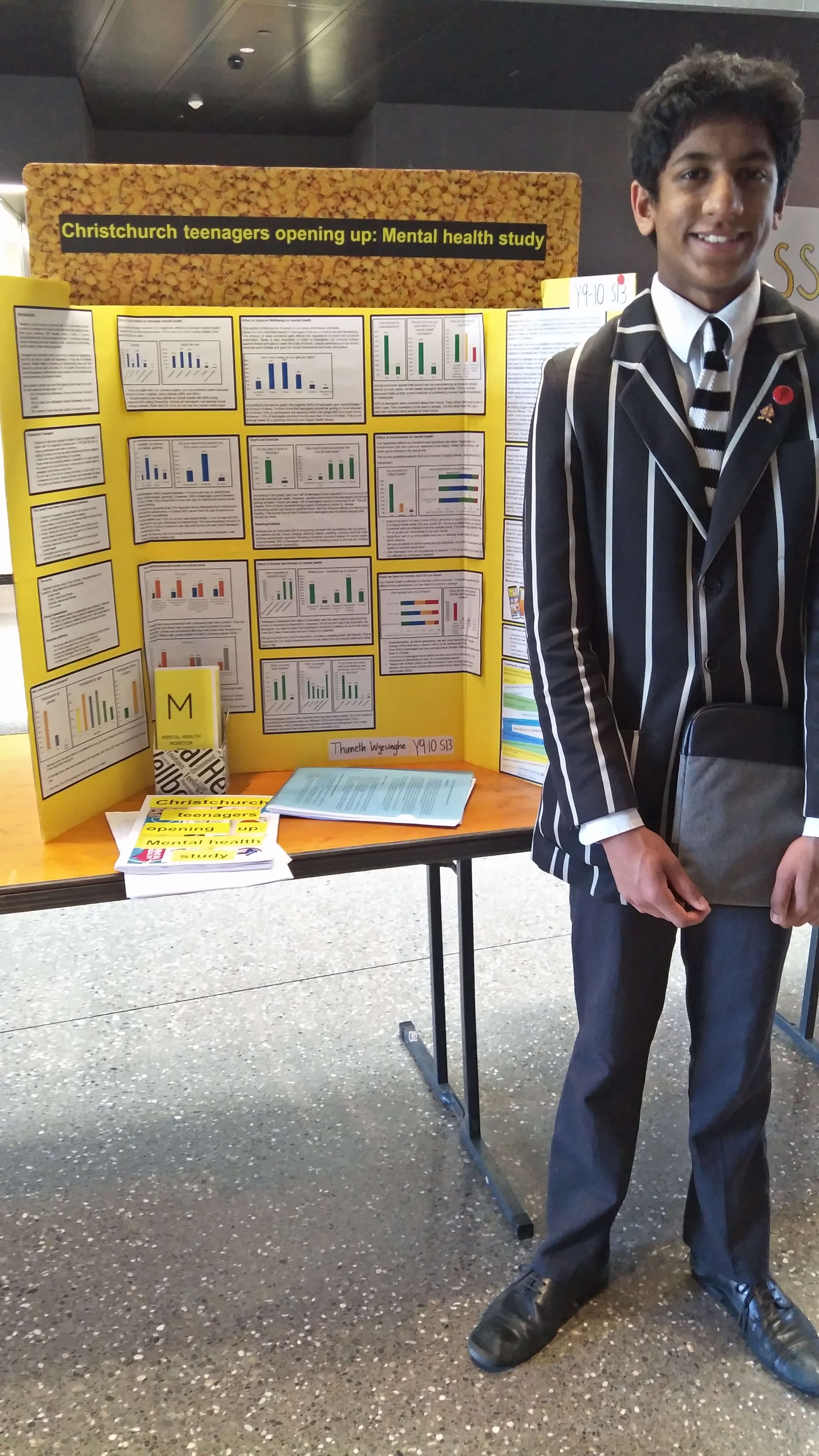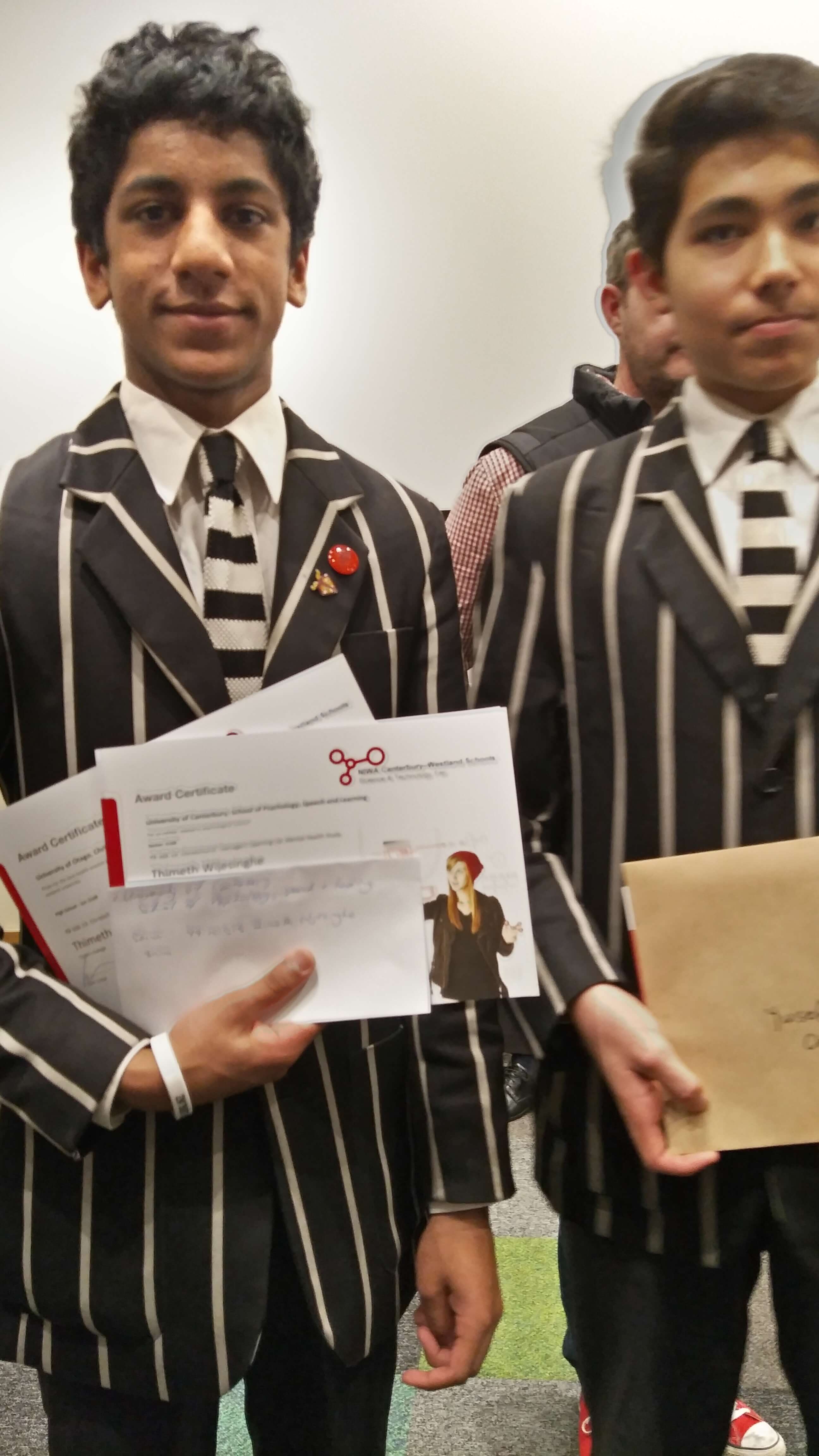Inquiring minds
21 Oct 2019
Year 10 students Thimeth Wijesinghe and Yusef Elnahas understand scientific research takes time, and have the curiosity and determination to test their ideas, solve practical problems, and gather and analyse data to illuminate their work. They presented the findings on their very different projects at the recent NIWA Canterbury–Westland Schools’ Science & Technology Fair, held at the University of Canterbury on Saturday 21 September – and their awards demonstrate their research is recognised for its potential benefits and outcomes.
Although Thimeth is passionate about the environment, this year he decided to explore another topical issue: adolescent mental health. He created a survey and sent it to schools across Christchurch, asking the respondents – both boys and girls – to consider questions on the environment and their surroundings, family and friends, social media, hobbies and leisure activities. The results, as reported in a poster Christchurch Teenagers Opening Up: Mental Health Study earned Thimeth two awards from the University of Canterbury for an exhibit related to psychological science and a project that displays best interaction between humans and the environment, and a University of Otago award for one of the best health science projects presented at the fair.
“I wanted to find another way to explore scientific research and mental health is such a topical and important issue as we’ve been through so much in Christchurch,” says Thimeth. “Choosing to do a psychology-related project came with a whole new set of challenges, but these results have a real human impact and can be used within schools to support student health and wellbeing.”
Yusef’s research has been a long time in development; he started work on the project over a year ago, driven by his concern for the environmental impact of water pollution and his desire to improve resource management.
“Right now in New Zealand we have a huge issue with water pollution and the problems caused by eutrophication – an excess of nutrients in waterways, which causes excess growth of algae,” says Yusef.
His research revealed rice water – wastewater from rinsing or cooking rice – to be problematic, and so decided to explore how it could be put to a more productive use.
“There are many useful nutrients in rice water, so I decided to see if I could develop a way to use it as a fertiliser.”
Yusef tested rice water on different plants in different conditions, and compared the growth of plants fed by rice water and other fertilisers. It was a long-term project, but he was intrigued by the development of the work.
“In many cases rice water performed better than other fertilisers, but there were some problems along the way. In the end I found fermented rice water, which is rich in living microorganisms, was a more efficient way of providing nutrients to the roots and enhancing plant growth.”
For his presentation Water Pollutant Utilisation Yusef won the Canterbury Section of the NZ Institute of Agriculture and Horticultural Science award for the exhibit that best displays an aspect of agricultural or horticultural science, as well as first prize in the resource management section of the competition, for outstanding scientific and technological investigation into ways to protect and enhance Canterbury’s natural or physical resources. His win puts him in the running for Environment Canterbury’s prestigious Wrybill Trophy.
“After such a lot of work, it feels great to have accomplished something so special,” says Yusef.
